The Harding Presidency
advertisement
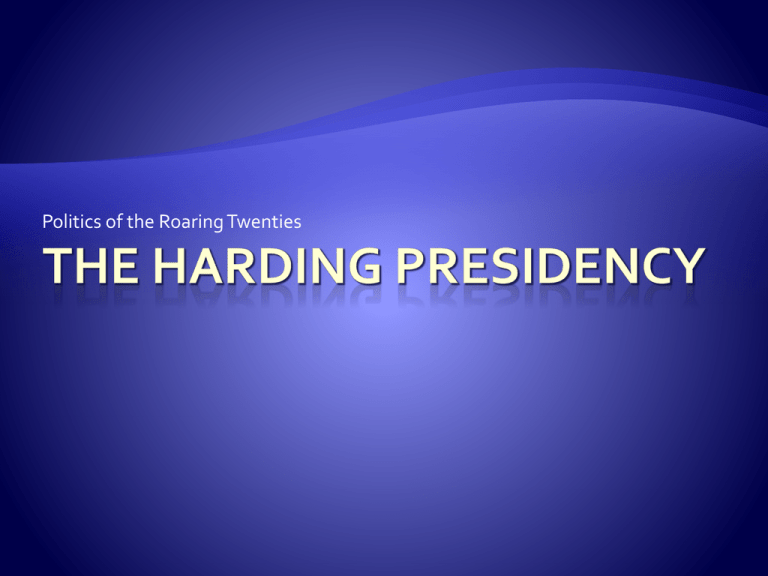
Politics of the Roaring Twenties Contrast Harding’s policy of “normalcy” with progressive era reforms. Identify scandals that plagued the Harding administration. How do you feel after getting back from vacation? Are you glad to get back to a routine? Assumed the presidency in 1921 He promised a return to normalcy—the simpler days before the progressive era and the Great War Washington Naval Conference (1921) President Harding invites Great Britain, France, Japan and Italy to the conference Secretary of State Charles Evans Hughes urged the naval powers to disarm—no more war ships would be built for 10 years Kellogg Briand Pact (1928) Rejected war as a national policy 15 countries signed the pact President Coolidge for the US signs the pact; however, the pact provided no means of enforcement Fordney-McCumber Tariff Raised taxes on U.S. imports to 60 % Made it impossible for Britain and France to repay war debts Dawes Plan American banker, Charles Dawes negotiated a loan to Germany to pay back Britain and France Britain and France then paid the US money it was owed This solution caused resentment towards the US Ohio Gang The President’s poker playing buddies that were corrupt and caused embarrassment for the president They were members of his cabinet Charles R. Forbes Head of the veterans bureau was caught illegally selling hospital supplies to private companies He was a good natured man, but his friends were the problem. He died of a heart attack August 2, 1923 Teapot Dome Scandal Government set aside oil rich public fields for the Navy in Wyoming and Elk Hills, California Albert B. Fall, secretary of the interior leased the fields to oil companies and receive over 400,000 dollars from an oil company Event Effects How would these events apply today? 1. Washington Naval Conference No war ships built for 10 years; disarmament Could we have another conference to discuss disarmament; should we be concerned with who controls nuclear technology? 2. Kellogg-Briand Pact Rejected war as a national policy; 15 countries signed the pact Could this Pact be applied today? How would Calvin Coolidge respond to terror networks like Al-Queda 3. Raised taxes on imports to the highest level How would raised tariffs affect the U.S. economy today? Should President Obama raise tariffs to protect American manufacturers. Fordney-McCumber Tariff 4. Dawes Plan Loans to Germany to repay reparations 5. Quota Act Limited the amount of people that could come into the US Would a quota act today solve our immigration concerns; is there a concern with who is allowed in this country? 6. Teapot Dome Scandal Government corruption; Can you think of other examples of government corruption in our History?
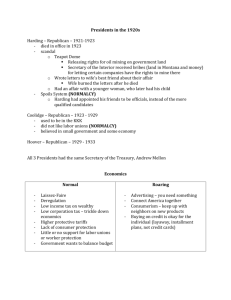
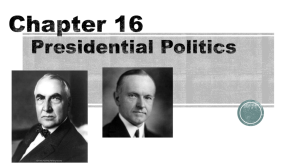

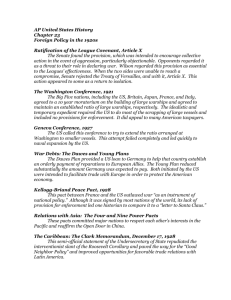
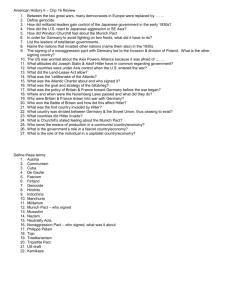
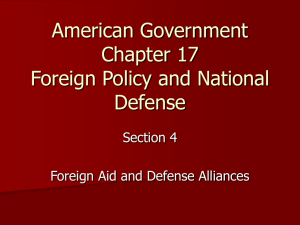
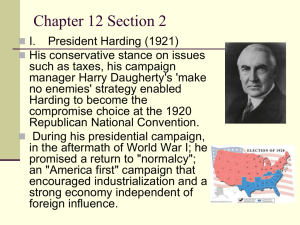
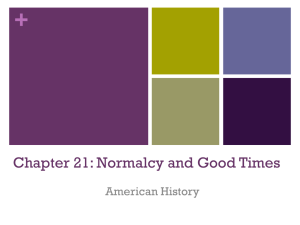
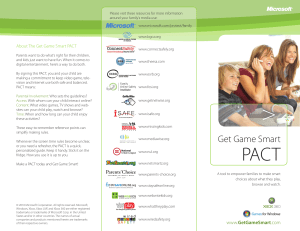
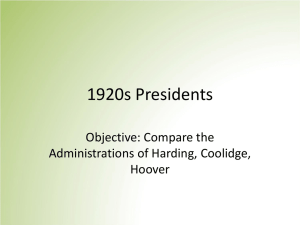
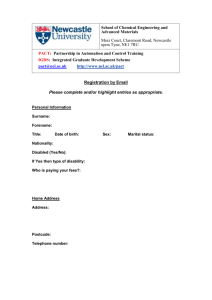
![Best-fit Decisions [, 25 KB]](http://s3.studylib.net/store/data/006613263_1-62a61f810693250e9828b38f77c693b2-300x300.png)